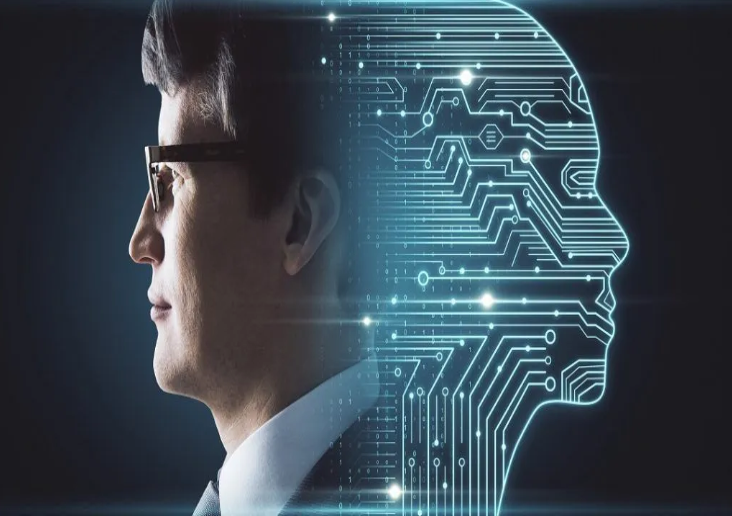
 Ageism and general discrimination in the workplace is nothing new: for years, companies, managers, and even coworkers who have learned best from seasoned employees have presented a negative attitude towards individual employees simply because of their age. Perhaps this view is fueled by the thought that an aging individual cannot perform their job as efficiently, or that they don’t understand youth-dominated aspects of society as well as their newer counterparts, such as technology. The problem with the concept of ageism existing in the workplace is a major problem because as you age and spend more years with a specific company/ in a specific position, you gain more experience under your belt and usually know how to actually perform better. However, this factual knowledge is easily dismissed by companies and employers who constantly want the newer, younger, more improved model of what an employee is supposed to deliver. This has also become a problem deeply reflected by the rise of AI (artificial intelligence); while this problem may be affecting mainly older individuals as of late, many younger employees, managers, business owners, and C-Suite executives fail to realize that, it is becoming more and more common for this to trend to catch up and affect them just as well.
Ageism and general discrimination in the workplace is nothing new: for years, companies, managers, and even coworkers who have learned best from seasoned employees have presented a negative attitude towards individual employees simply because of their age. Perhaps this view is fueled by the thought that an aging individual cannot perform their job as efficiently, or that they don’t understand youth-dominated aspects of society as well as their newer counterparts, such as technology. The problem with the concept of ageism existing in the workplace is a major problem because as you age and spend more years with a specific company/ in a specific position, you gain more experience under your belt and usually know how to actually perform better. However, this factual knowledge is easily dismissed by companies and employers who constantly want the newer, younger, more improved model of what an employee is supposed to deliver. This has also become a problem deeply reflected by the rise of AI (artificial intelligence); while this problem may be affecting mainly older individuals as of late, many younger employees, managers, business owners, and C-Suite executives fail to realize that, it is becoming more and more common for this to trend to catch up and affect them just as well.
Ageism is only one of the many moral complications of AI in society. In his book Artificial Intelligence;Dangers to Humanity, Cyrus S. Parsa discusses the multitude of moral dilemmas impacting our society, and our mental health, as it pertains to AI.
While as a society we are not completely up to par, AI is already preparing to do almost everything a human can—we already have customer management, navigating large data, accounting, banking, and now AI is programming to move to advanced tasks such investments, marketing just in time to consumer demographics and behaviors, monitoring companies’ systems, and performing surgeries. For trained, experienced and perhaps older employees who are already targeted for not being able to complete tasks at a quick enough pace or not as efficiently as younger employees, AI can certainly pose a threat and lead to layoffs, pay cuts, or jumpstart early retirement for the seasoned employees or executives. According to a brief from the Center for Retirement Research at Boston College, those most at risk for replacement by AI include about 35-49% of those in middle-ground labor positions, such as baristas, restaurant workers, truck drivers, maintenance and construction workers, and social service workers. One main concern about AI’s effect on older people currently isn’t even about the workforce and keeping a steady job, but rather how an AI-driven healthcare system often leaves out older people: new AI approaches and systems often ignore the feedback of older people, assuming that they don’t know how to navigate technology. AI-driven studies and statistics also have been continually reported to leave out the elderly population, who are benefiting the least from the healthcare system.
The main concern for ageism in the workplace at the moment is still younger workers and employers who often let their stereotypes get the best of them. What can you, as an employee or employer do to combat human-driven ageism? For starters, be inclusive in your data gathering efforts. Whether in your workforce, or in your service or product offering, or client support. Holding informational and training sessions and growth opportunities in which the organization rewards data driven efforts bases on inclusivity, whether it be age or some other factor. A great book that touches on this subject is Nitin Seth’s book called: Mastering the Data Paradox; Winning in the AI Age . As a manager or employer, it is pertinent to create a culture of acceptance, non-judgement and crush stereotypes. This means that whether you are a coworker or an employer, open discrimination due to age, technology (AI) or both is based on a no tolerance policy.
A compassionate, multi-cultural, multigenerational based on collaboration and exchange of all forms of relevant knowledge, is not only moral and ethical but it also efficiently, builds a lasting, strong culture of growth, and productivity one day at a time.
Remember, every day is a new day to be Centered at your Work and Life.
Email: info@centerforworklifecounseling.com
Website: https://centerforworklifecounseling.com
http://centerforloveandmarriage.com
Phone: (321) 758-5161





